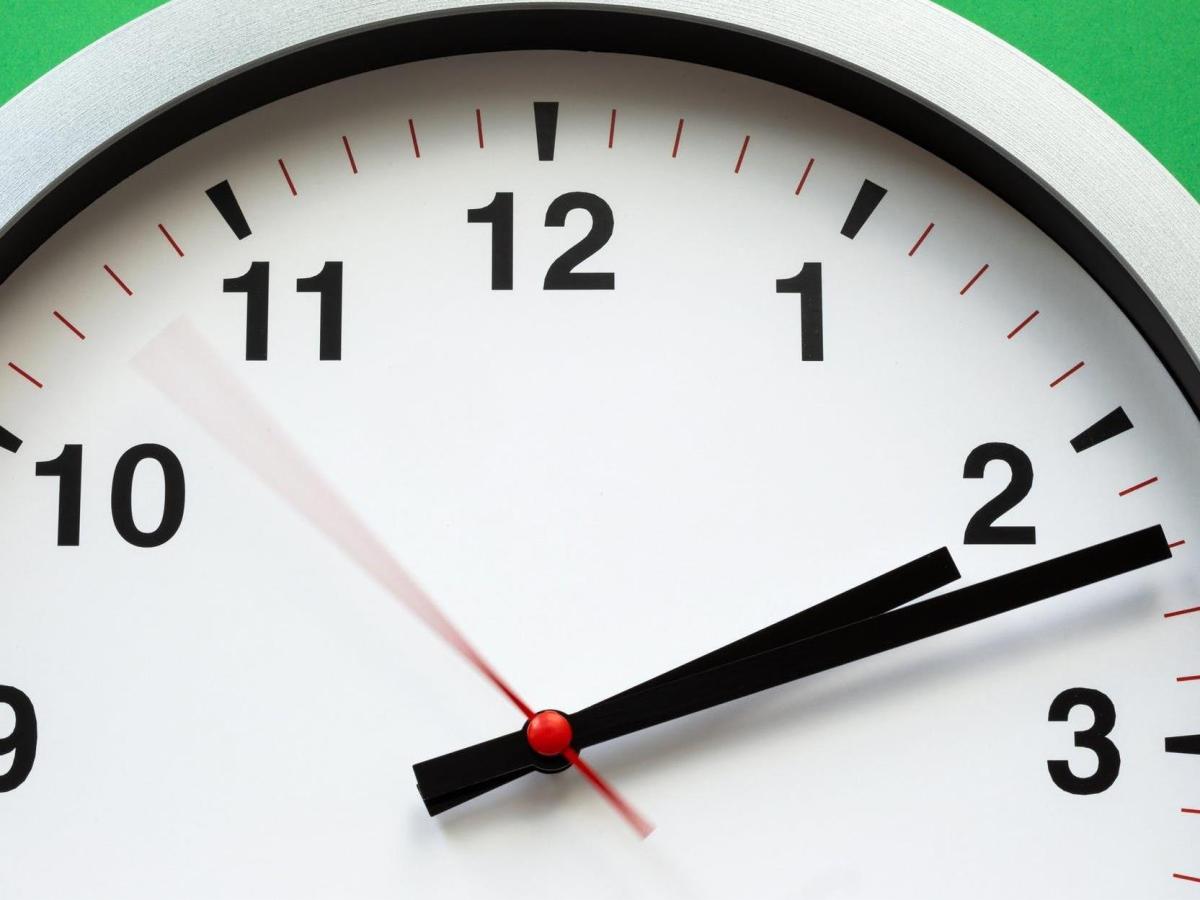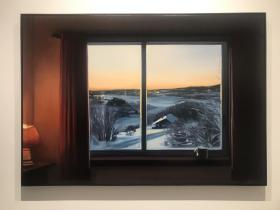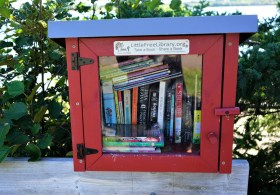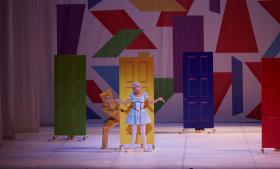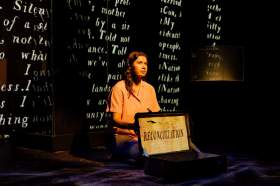Image via Pexles.com
One of the biggest challenges for any creative – new or established – is starting. But it’s no wonder many people find it a difficult feat when the definition of start means to ‘come into being.’
For a creative who is pursuing a self-initiated project, this coming into being brings with it a lot of confusion, self-doubt, fear of not being good enough, overwhelm, and perfectionism.
Such internal jams can be the reason why we find the year coming to a close, but little-to-no traction made on that thing we wanted to do, but kept putting off.
Spending the last five years asking creatives how they do what they do, I’ve seen these common blocks come up again and again.
But equally, I’ve also heard various approaches for overcoming them. Recently, I’ve put these strategies into action with a regular event series, Side Project Sessions to not only iterate the recipe for getting started, but to create a space for the experimentation and self-discovery that comes with pursuing something of your very own.
While getting started can feel intimidating and bring up a lot of internal resistance, I’ve found there is plenty to learn from others about how to get going and put you and your project first.
Be open to what’s on the sidelines
Starting can be especially difficult if we don’t know what it is we want to start! It’s normal not to know what you want to do next, and this is where it can be helpful to be open to what’s in your periphery. Cartoonist Chaz Hutton, who is known for his post-it note illustrations, proves that extraordinary things can happen when you show up, create your own side project and strive to be open to what’s on the sideline.
‘For me, it was never a strategic move to make this my job. It was a side project that was almost like a raft – I had my career as an architect that was the stable boat, but someone else was always driving. So I made my own little raft to kick off the side, and even if it was never sea-worthy, it was my thing, my little beacon of hope. Without your own little raft, it can be so easy to become disenchanted,’ Hutton says.
Be okay with being a beginner
As writer Steven Pressfield explains, fear – or what he calls “Resistance” – can actually provide fuel for your creative work when you learn to embrace it.
Photographer and writer Paul Jun agrees, and adds it is important to embrace difficult beginnings.
‘I am familiar with the Resistance as a writer and have learned to dance with it, but playing with photography put me back in the beginner’s chair,’ Jun said. ‘That was humbling and important, which is why side projects and play are key to creativity. You have to keep that beginner’s mindset; it cultivates curiosity, humility, and open-mindedness.’
Being a beginner is also fertile ground for creativity, explains writer and comedian Magic Steven.
‘There are benefits to clocking up hours of practice, but there are other great benefits in being inexperienced, naive and open-minded. Being pure, not entrenched in any corrupt, outdated system. Everyone always talks about 10,000 hours, but yesterday I was talking with a friend about all the great work people do who are new to something, and I wondered if there is, or should be, a counter-movement or counter-concept called “10,000 Seconds”,’ said Steven.
Find your ideal version of accountability
While some people appear to have an internal compass that keeps them accountability, many of us need to manufacture accountability in order to progress in our personal work – which often has no deadlines or restrictions.
Some approaches include setting up an accountability circle with friends, a few of you share your project goals and check in with how everyone is progressing.
This could also be one person. When friend and writer Brodie Lancaster was writing her book, No Way! Okay, Fine I acted as her ‘human deadline’ while she wrote the draft chapters. Each week she would have to send me a new chapter or risk a scornful eye.
Others may prefer to broadcast to an audience or via social media about a new project they are starting.
Pick a set time each week to work on your idea
With a lot of drive in her 20s (which arguably still remains now in her 30s!), Zoe Foster Blake started writing books on the weekends. Every Saturday, she would stay in to write, irrespective of what her friends were up to.
‘I lived right on Bondi Beach and I could honestly see my friends out on the grass having fun and I would just pull the blinds down and go back to my laptop. I’m glad I did because by the time I got to my 30s, things kind of fell into place. Because I did that work then, I have a little bit more of a pick-and-choose luxury now and I can do projects that I want to work on, rather than feeling like I have to,’ she said.
By sticking to a time and place for attending to your personal work, you make the project itself a distraction and something special to guard – when you have made solid plans with yourself, and enact them week after week, you get better at dealing with the fear of missing out or buckling under what others want you to do.
Keep the blinders on
Something that prevents people from pursuing an idea is the thought that it’s already been done before.
This is where it is important to keep your blinders on and stay focused on your own work, rather than worrying what other people are up to, and how you compare.
In the words of writer Brenda Ueland, ‘Don’t always be appraising yourself, wondering if you are better or worse than other writers. I will not reason and compare – my business is to create. Besides, since you are like no other being ever created since the beginning of time, you are incomparable.’
Even if your project or idea has been done before, you have the advantage of being an entirely different person who cannot help but do it differently.
Prioritise your time
Having ‘no time’ is a common block to working on personal work – even if such work would bring joy, meaning and fulfillment to someone’s daily life.
‘I never used to have enough time but now I feel like that’s all just a concept – you decide how much time you have, you choose that. You can work instead of watching Broad City, or first thing in the morning. I’m just starting to feel a bit more in control of that,’ says artist Tai Snaith.
What has been instrumental for helping get myself started as well as those who attend Side Project Sessions, is create set blocks of time to do a task. Setting a timer for 45 minutes of focused work each week might not seem a like a lot, but this effort accumulates over time if we seize the time we have.
I’m reminded of the words of writer C.S. Lewis: ‘Isn’t it funny how day by day nothing changes, but when you look back everything is different?’
Define your own measures of success
Peppered throughout every stage of life are countless individuals, teachers, experts, books, and articles telling us how to set up our education, our careers, even our interactions and conversations, for success.
Yet success isn’t something that can be clearly defined, especially when we attempt to apply it to a creative profession.
While some careers have a clear path or markers of success such as promotions, for many artists and creative professionals success remains ambiguous. For an illustrator, have you made it when you have a New Yorker cover, or when you reach a certain number of followers on Instagram?
But the great thing about personal projects is that they are just that — personal. There are no preordained measures of success.
Whenever I have felt stuck or worried that I’m not doing enough on my side projects, I remind myself that I define my own meaning for success.
With a personal project, you can scale how much time you spend on them depending on other work or personal commitments. You can always iterate, pause and start over.
Take away the pressure of ‘the hustle’
After time, Chaz Hutton abandoned the boat – his full time job – for the raft he had created on the side. But unlike some porous advice that suggests your should ‘leap before you’re ready’ or ‘hustle and make it happen’, Hutton resents the hype around quitting your day job to ‘follow your dreams’.
‘I never took the financial risk, although that’s the story people generally want to hear. If you are struggling to pay your rent and then go and quit your job, you’ve got approximately two and a half weeks before you hit rock-bottom. Very few people have the luxury of quitting, so I’ve only ever done what I’ve been financially able to do at the time,’ Hutton explained.
Start from where you are – even if that place is difficult
Often we think we have to wait for the ‘right’ time to start a new project, but often it’s the ‘wrong’ time that propels us forward. Throughout her 20s, Mari Andrew worked various jobs in marketing, fashion, not-for-profits, cafes and restaurants. It wasn’t until she was 28 and experiencing a heavy bout of grief and heartbreak, that Mari began illustrating as a way to bring a sense of joy back into her days.
‘I wanted to find ways to make myself happy and mentally strong. All of that was done through routine – drawing once a day, taking guitar lessons twice a week, doing yoga, waking up earlier, even just learning how to do my hair in new ways.’
Just a few years after posting a new illustration to social media each day, Mari has amassed over 770,000 Instagram followers and lives solely off her creative work. ‘I started illustrating just for fun, and about a year later I was too busy to have a day job anymore.’
Our grief, our hurt, our joys, or seemingly small ideas can lead us in many directions – the key is to begin, in whatever way we can.
Definitely be kinder to yourself
Often an inability to start comes from being to harsh on ourselves in the beginning. We let perfectionism or self-sabotage get in our way, or worry we are already too far behind.
But it’s important to remember it’s a slow process for anyone to ‘come into being,’ and perhaps it’s comforting to know these fears and blocks are something we all have in common.
‘Everyone has the same fears, everyone has the same doubts, everyone has shit days, everyone feels like a fool, a phony. Everyone has a really great morning where they write something fantastic and then look at it later and thinks it is just rubbish. Everyone puts stuff out and worries that no one’s going to like it. We’re all the same. There’s no one out there just sitting down gallantly every morning and writing for eight hours and just clocking off. That person doesn’t exist,’ musician Jen Cloher reminds us.
There are a lot of smoke and mirrors when it comes to creative work, and instead of judging ourselves or others, the best thing we can do is take small steps into our work and ourselves.
* * *
On Saturday 15 December, Madeleine Dore will be hosting a MTalks – How to start and sustain your creative project alongside inspiring creatives, Santilla Chingaipe, Honor Eastly and more.
